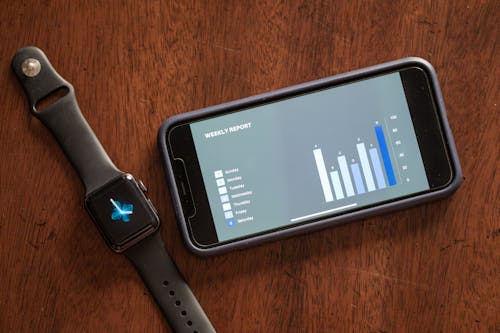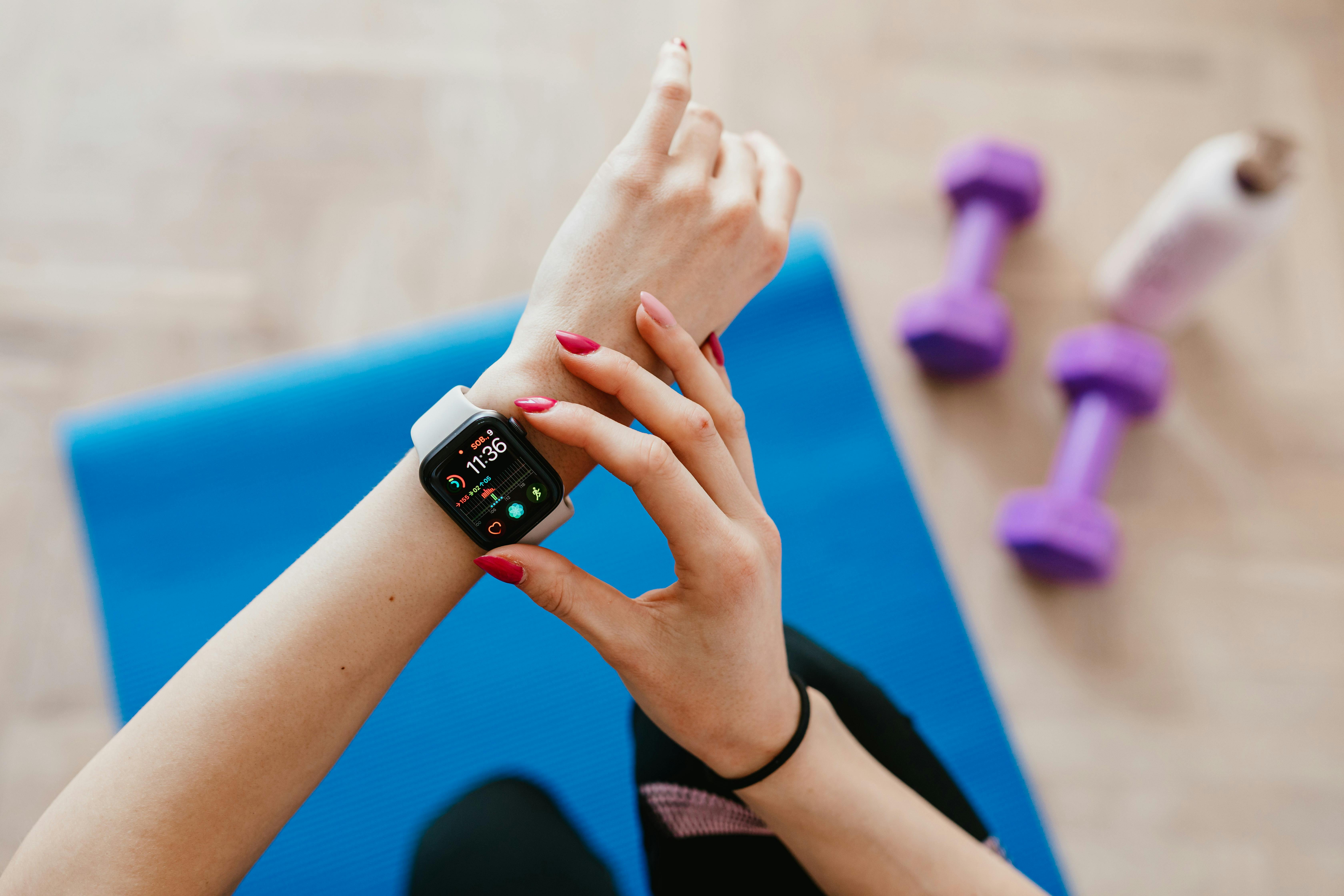Between work, family responsibilities and everyday life in a fast-paced city like Dubai, finding time to focus on your health can feel like a luxury. Many in the UAE, including parents and working professionals, struggle to balance wellness with their busy routines. The good news? Technology can help, and with the revolutionary potentials of artificial intelligence (AI), tracking your health and fitness has never been easier.
Whether you want to move more, eat better, sleep longer, or just feel more in control of your well-being, using simple, user-friendly AI tools can support your goals. You don’t need to be tech-savvy or go to the gym every day. With the right tools, you can track and improve your health from your home, on your own schedule.
Connector explores how AI-powered apps and devices can become your personal health assistant.
What Is AI-Powered Health Tracking?
AI-powered health tracking refers to smart systems that use your personal data, like steps, sleep, heart rate, or food intake, to give you helpful, personalised advice. These systems 'learn' from your habits and adjust their recommendations to better suit your lifestyle and goals.
You’ve likely already seen or used some of these tools, like fitness bands, smartwatches, or health apps on your phone. But what makes them 'AI-powered' is their ability to understand your patterns and guide you with insights and recommendations like adding more protein to your diet, or getting in more daily steps, or fine-tuning your sleep schedule, and so on.
Keep in mind that these tools are meant to support your health, not replace your doctor. If you have medical concerns, always consult a professional. AI can help you stay on track and take control of your health and fitness to a large extent, but it’s not a substitute for regular health check-ups.

What AI Can Help You With, And How
Some of the ways in which AI tools can support you across different areas of health and fitness, include:
1. Staying active and moving more
Many wearables and smartphone apps, use AI to track your movement and suggest ways to improve. They can measure your daily steps, workouts, and even heart rate during exercise. AI helps by setting realistic movement goals based on your current activity levels and suggesting workout routines that match your fitness level. AI will also remind you to get back on track when you're falling behind. You can also use AI apps like Fitbod, Aaptiv and Freeletics Neural Coach to act as your personal trainers. These apps will assess your current situation, track your workout routines and recovery status and help you make consistent progress through personalised workout plans.
2. Eating healthier and managing your diet
AI-powered nutrition apps, such as MyFitnessPal, Lifesum and HealthifyMe, help you log meals and track calories and nutrients. These apps even let you scan barcodes or take photos of your meals for easy tracking. You can get recommended meal plans that match your health goals, and AI will also be tracking if you're getting enough vitamins, protein and hydration. AI can also notice unhealthy eating patterns and gently nudge you to change it for the better. Of course, this is contingent upon you being transparent on what you're eating.
3. Sleeping better and managing stress
Sleep quality is closely linked to overall health, especially for those juggling stressful schedules. AI tools can monitor your sleep patterns, track how long and how well you’re sleeping, and recommend ways to improve. AI-powered devices, like Oura Ring, can notice if your sleep is getting interrupted or too short, while also tracking your stress levels through heart rate or breathing patterns. You will get suggestions based on these insights.
4. Tracking women’s health
Many apps offer AI-powered tools to track menstrual cycles, symptoms, and changes in mood or energy. For women managing fertility, pregnancy, or menopause, these tools can offer extra support. Consider apps like Flo or Clue which can predict cycle changes or ovulation windows and even offer educational content tailored to your needs.

How To Get Started
- Choose one area to focus on first: Pick a goal that matters to you most. Maybe it’s walking more, eating better, sleeping longer, or managing stress. Starting small helps you stay consistent.
- Pick a simple tool that matches your goal. Depending on what your immediate requirements are, choose the most appropriate app that can help you track your health and fitness in the long term. Consider seeking personal opinion from your peers who may have used these apps and can attest to their efficacy.
- Set up the app or device: Most apps will guide you through a short setup, where you will be adding your age, weight, height, nutrition patterns and goals. Make sure to allow notifications so you can get reminders or tips during your day.
- Use regularly and check progress: Logging meals, checking step counts, or reviewing your sleep doesn’t take long. Build it into your daily routine, perhaps right after breakfast or before bed. Every few days, review what the app is telling you. Are you meeting your fitness goals? Did you sleep better this week? Let AI highlight patterns and suggest small changes.
- Build on your success: Once you feel comfortable, you can add another goal, like combining sleep tracking with a meal plan, or adding stress monitoring to your fitness tracking. Over time, your AI tools will give you a more complete picture of your health.
Make AI Work For You
Health doesn’t have to be complicated. With the help of AI, you can take small, meaningful steps toward better fitness, better sleep, and better overall well-being, without needing a big lifestyle change. Many of these tools are already on your phone or available as free apps. The most important thing is to start and make them work for you.